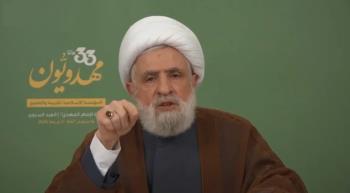Alwaght- Kazakhstan capital Astana on June 3 and 4 hosted the 24th meeting of leaders of the Shanghai Cooperation Organization, and from Iran the acting President Mohammad Mokhber headed a high-ranking political and economic delegation to this bloc.
One of the important points of the recent meeting of the SCO was the presence of the UN secretary-general that indicated the growing position of this bloc in the global trends.
Asked what role the regional organizations like SCO can play in the current geopolitical dynamics, Antonio Guterres answered: "Addressing the challenges we face requires effective international institutions that are rooted in the realities of the 21st century and based on United Nations Charter and international laws." Guterres emphasized that in the past few years, this bloc has emerged as an important player in the world community. The member countries of the SCO account for 43 percent of the world's population, 25 percent of GDP, 20 percent of the exports, 20 percent of the world's imports and about 23 percent of the world economy.
President Raisi's successful policy for securing SCO seat
In the early 2010s, the Islamic Republic of Iran submitted a request for official membership in the 8-member organization (China, Russia, India, Kazakhstan, Tajikistan, Kyrgyzstan, Pakistan and Uzbekistan). With the beginning of the administration of the late President Ibrahim Raisi and Iran's shift to "Look East" policy and preferring the neighbors and boosting regional convergence, the request was accepted in the first participation of Raisi in the organization's summit in April 2021 in Tajikistan.
After passing the legal procedures in the organization, in June 2023 and in the 23th summit of the bloc in India, the bloc officially took in Iran, opening new gates of mutual interests and cooperation between Tehran and other members.
Iran-SCO mutual opportunities
The SCO hosts various meetings and initiatives that focus on regional trade, transit, industrial cooperation, innovation, projects, poverty cutting, digital transformation, tourism, public diplomacy, and other areas. This broad and diverse agenda is an important challenge for the SCO secretariat, which must coordinate and manage the various initiatives and activities of its member states.
Iran's presence in the SCO makes a proper ground for expansion of economic relations and facilitates logistic routes for all the member states. At the same time, it provides unique opportunities for security cooperation with the Central Asian states. The recent security changes and developments in Afghanistan, for example, require mutual cooperation of Iran and other neighbors of Afghanistan.
The SCO with a security-defense nature has three permanent bodies of counter-terrorism regional structure , trade council, and inter-banking consortium. It has also experienced significant vertical development in terms of its functions and activities. While the main and initial focus of this organization as the successor of the Shanghai Group of Five was on border issues and confronting the so-called three evils of terrorism, extremism and separatism, its tasks gradually expanded to include a spectrum of economic, cultural and scientific fields.
Energy partnership is another key priority of the SCO. The SCO's Energy Club, established in 2013, has significantly increased cooperation among major energy producers such as Russia, Saudi Arabia, Iran, Kazakhstan, and Uzbekistan, and consumers such as China, India, Pakistan, Turkey, Kyrgyzstan, and Tajikistan. The club has supported projects such as the Central Asia-China gas pipeline, and plans are underway to make Turkey a vital gas hub through which energy trade can be conducted between member states and Europe.
Apart from the traditional energy sectors, China and Russia have also exported nuclear reactors to other member countries. The aim of these plans is to establish the organization as a self-sufficient energy system and they have played an important role in mitigating the impact of international sanctions on Russia.
The SCO significantly meets China's Belt and Road Initiative (BRI), a cornerstone of China's foreign policy, that is designed to strengthen global trade networks and infrastructure development across Asia, Europe and Africa, and is acting as New Silk Road.
A majority of the SCO members, excluding India, have approved RBI projects such as the aforementioned Central Asia-China gas pipeline, the China-Pakistan Economic Corridor (CPEC), the Astana International Financial Center (AIFC) in Kazakhstan, and the China-Kyrgyzstan-Uzbekistan (CKU) railway. While the RBI focus on strengthening regional connectivity overlaps with the SCO goals of promoting integration among member states, these projects have sometimes raised concerns about China's growing influence in the region, which has led to some grade of friction with India and Russia.
In general, given Iran becoming an official member of the SCO, the Islamic Republic should sieze the opportunities to help settle the regional security challenges especially in Afghanistan and expand all-out ties with Central Asian state.



























